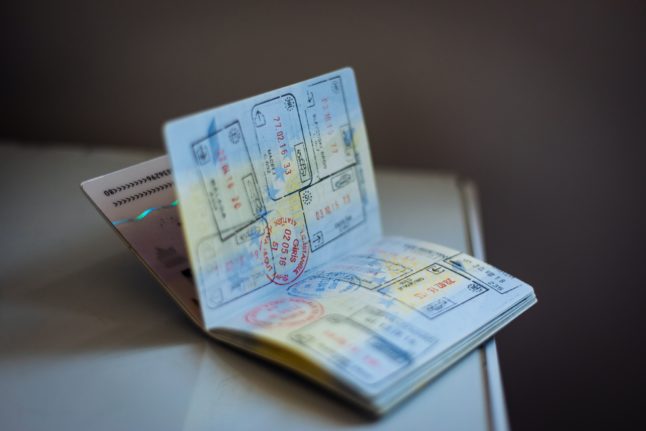You might have heard of France’s ‘fast-track citizenship’ for over 1,000 foreign-born frontline workers during the height of the pandemic or perhaps stories of other EU countries that offer faster and simpler residency in exchange for investment.
You might even have seen companies offering to ‘speed up’ paperwork for you.
Unfortunately we’re here to tell you that there is no secret ‘fast lane’ where everything is dealt with speedily, even if you were willing to pay for it.
There are, however, some things that you can do to make sure your paperwork is dealt with as fast as possible.
Be sure you are applying in the correct category
One sure way to encounter delays is to apply for the wrong thing, so it’s really worth taking the time to do your research in advance into the different types of residency cards and visas.
If you apply for a visa or residency card type that you’re not eligible for, it’s likely that your application will simply be rejected and you will have to start all over again.
We have a guide to the different visa types HERE.
Another way to save yourself an annual admin task is to go straight onto a multi-year visa, such as the ‘passeport talent‘ which lasts for four years.
You might think that this is only available to high earners, but there are several other situations in which you might qualify. For instance, researchers, artists and those with ‘international reputation’ can qualify too.
READ MORE: Talent passport: The little-known French visa that could make moving to France a lot easier
Have a complete dossier
This might seem obvious, but a common hang-up with French administrative processes is simply not having all of the correct documents – all residency and visa applications have a list of the required documents and you should make sure that you have everything that is needed ahead of either submitting your application or heading in for your appointment.
The documents should be up-to-date (as recent as possible – usually best to aim for within the last month or two, though your specific procedure might specify a timeline). Each document should have the same full name and the same address listed.
Consistency is key – for example, if you are applying for a new titre de séjour and you bring in a copy of your proof of health insurance (Attestation de droits – assurance maladie), but the address listed is out of date, you could risk being turned away or told to come back.
Pay attention to the details too – if you need new identity card photos, the ones you took a year ago will likely be out of date (even if your appearance has not changed).
Always bring copies of your passport, current visa or residency permit, as well as any required paperwork. Most of the time, you’ll be asked to show proof of your current address – it does not hurt to have multiple ways of demonstrating this (eg a phone bill and an electricity bill).
Bringing the wrong documents, those with mismatched information, or missing key forms will prolong the process, as you will need to make a new appointment and start the process over again. Having your documents ready to go in an organised fashion can save you lots of time!
Go in person, if possible.
In France, it is often faster to do administrative processes in person. If you are worried about your French, consider asking a friend to come along.
If an in-person option is not available, then a phone call is your next best bet.
France is gradually putting more procedures online, but the old-fashioned way of speaking to a real person is almost always most efficient, especially if you have situation-specific questions. Surprisingly, your local tax office might be one of the most welcoming places to pop in and ask a question.
READ MORE: Reader question: How can I challenge my French tax bill?
Seek expert help if your situation is complex or irregular.
If your situation is out of the ordinary, you might want to consider legal or professional assistance to be sure you are following the correct path.
However, keep in mind that even with expert assistance, you will still need to file the documents yourself at the end of the day. A lawyer can help you be sure that your dossier is correctly filled out and prepared, but they cannot make French bureaucracy work faster, unfortunately.
Citizenship
We said there is no fast-track, but French citizenship is the exception (sort of).
If you’re applying through residency, French citizenship can normally be requested after five years, but the ‘period of residency’ requirement can be reduced to two years for those who successfully completed two years of study in a French institution of higher learning or if you have rendered “important services to France” (as was the case for the essential workers listed above).
If you marry a French citizen, you can apply for citizenship through marriage after four years of marriage.
And if you join the French Foreign Legion and are wounded on active service you can apply for citizenship before the minimum five year period – although this seems a slightly extreme way to avoid waiting times.
READ MORE: Am I eligible for French citizenship?
Once you have applied, there is unfortunately no way to fast-track the process, and the average time between submitting your application and being naturalised is 18 months to two years.
Zen
But ultimately, it might be better to accept that French admin tasks usually take a long time – and processing times can vary quite dramatically between different areas.



 Please whitelist us to continue reading.
Please whitelist us to continue reading.
Member comments